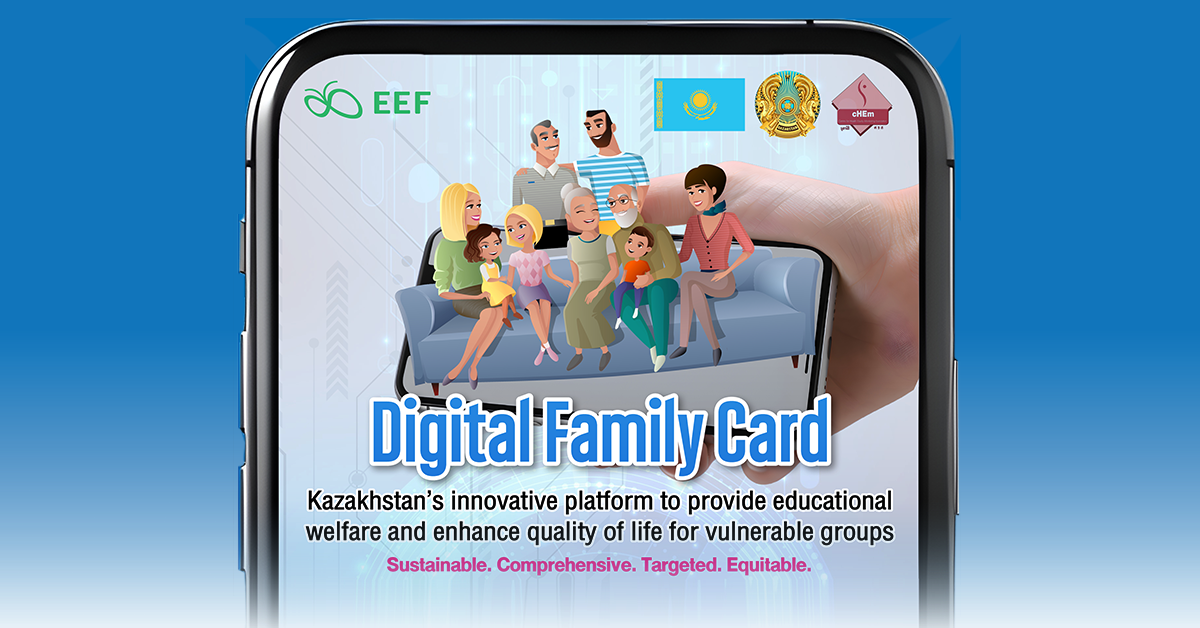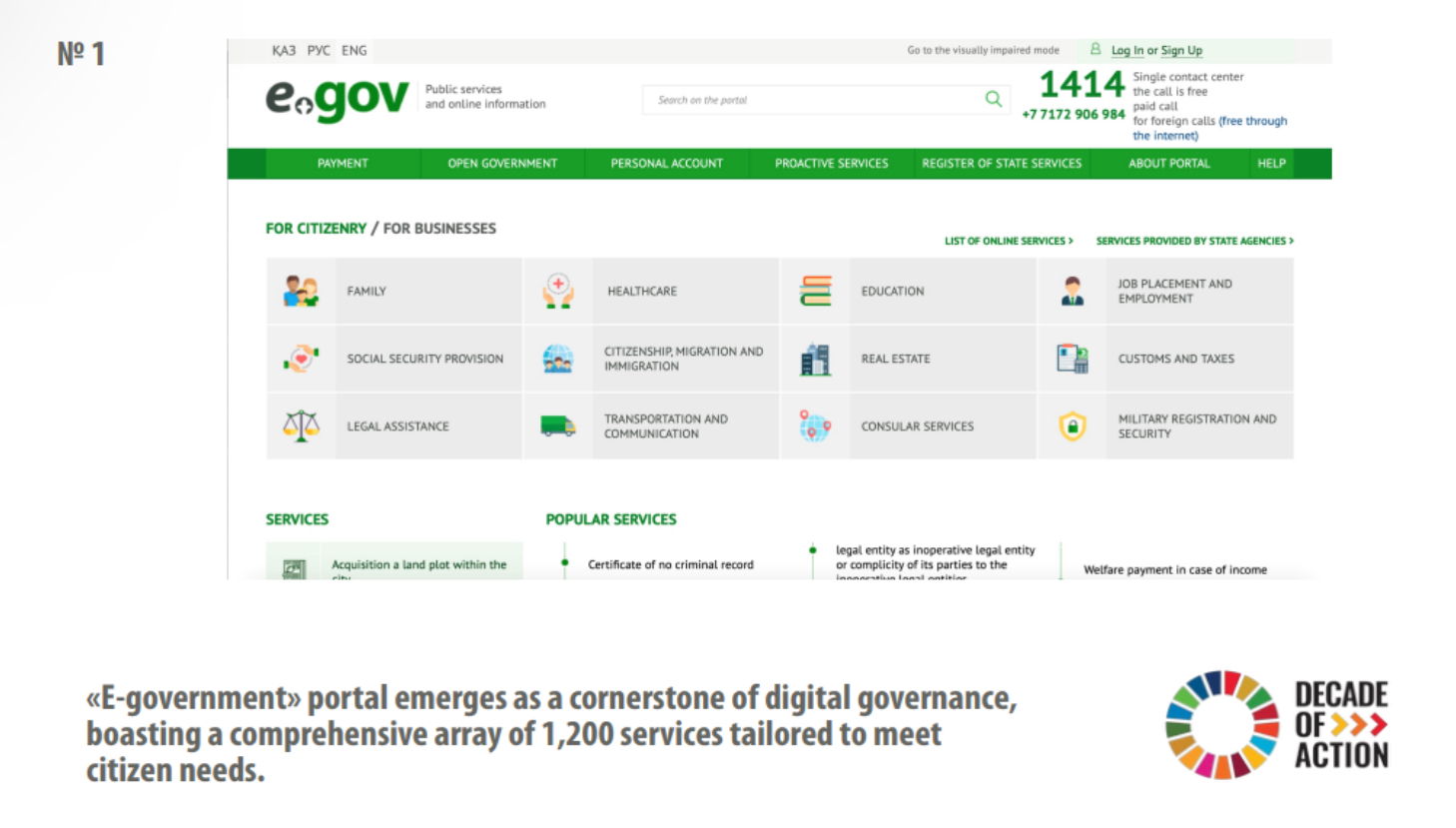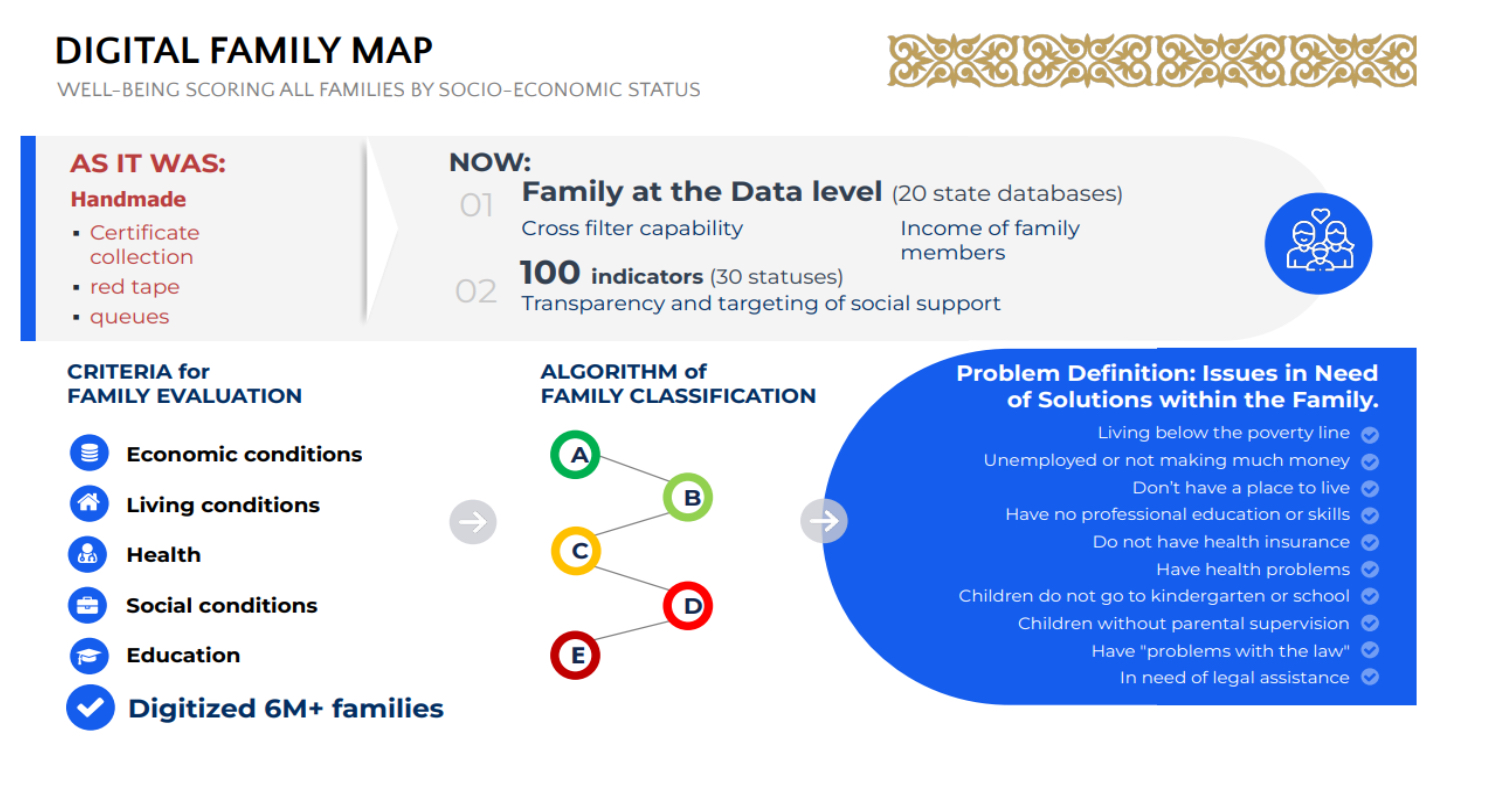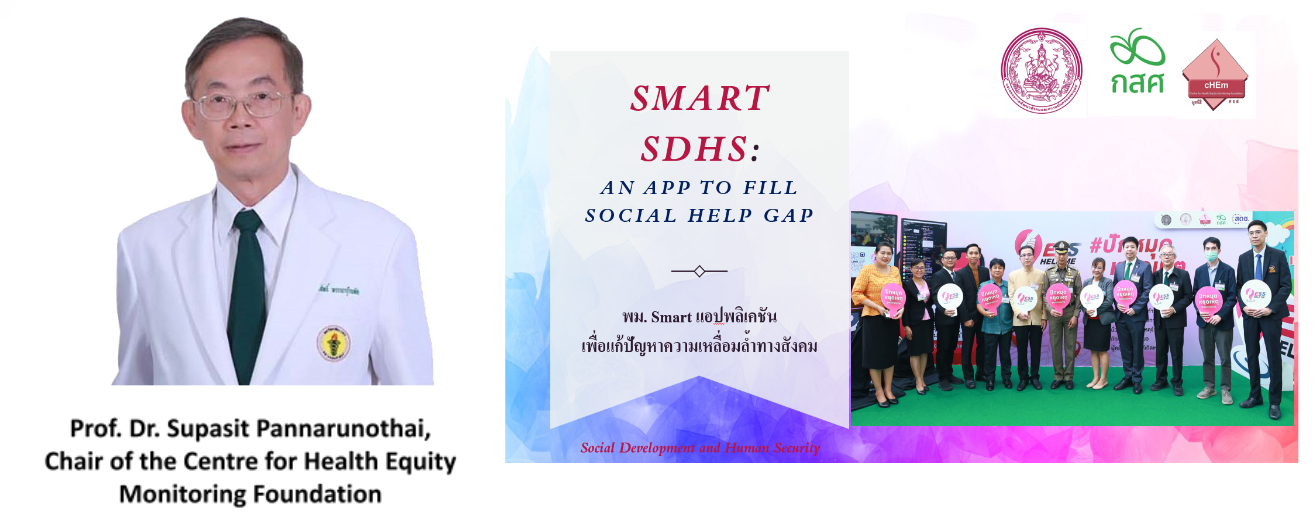
Bangkok, March 8, 2024 — Kazakhstan, recognizing the transformative power of digital technology, has launched a pioneering initiative called the Digital Family Card (DFC) to bridge the digital divide and empower vulnerable groups, particularly in rural areas. This innovative platform, unveiled amidst the backdrop of a global surge in internet usage, aims to leverage digital resources for societal upliftment.
In an effort to illuminate this groundbreaking endeavor, the Equitable Education Fund (EEF) hosted an insightful online seminar featuring esteemed speakers such as Mr. Vitaliy Alexandrov, First Secretary at the Embassy of the Republic of Kazakhstan to Thailand; Mr. Dmitry Mun, Deputy Chairman of the Board at National Information Technologies (JSC); and Prof. Dr. Supasit Pannarunothai, Chair of the Centre for Health Equity Monitoring Foundation. Ms. Thantida Wongprasong, Director of the Office of Innovation for Learning Opportunity at EEF, served as the moderator, while Mr. Pattanapong Sukmadan, Assistant Managing Director of EEF, acted as the webinar chair.
Ms. Thantida Wongprasong provided context on Kazakhstan, , a country ranked 28th globally on the UN E-Government index and renowned for its digital innovation. Kazakhstan has achieved remarkable success in integrating diverse governmental entities and fostering robust connectivity with its citizens. Central to Kazakhstan’s digital evolution is the Digital for Communities (DFC) initiative, designed to cater to the varied needs of vulnerable populations, particularly those residing in rural regions. This initiative utilizes a comprehensive array of multi-dimensional indicators to assess and address the unique challenges faced by these families.

Mr. Vitaliy Alexandrov, First Secretary at the Embassy of the Republic of Kazakhstan to Thailand
“Vitaliy Alexandrov, in his remarks, emphasized the transformative potential of digital platforms, heralding a paradigm shift in the region’s economic landscape. “The way we develop digitally changes the economy in our region on a large scale,” he remarked, underlining the profound socio-economic impact of digital innovation.

The e-government platform in Kazakhstan serves as a comprehensive one-window solution accessible via mobile phones. It facilitates various functions, including the submission of complaints within a 14-day window, evaluation of government services, and requests for various permits. This streamlined
approach aims to reduce processing time and integrate the workings of various ministries, enhancing efficiency and accessibility for citizens.
At the heart of the Digital for Communities (DFC) platform lies an extensive array of 80 indicators, covering aspects such as a family’s economic status, social well-being, and overall condition. Leveraging advanced algorithms, the platform autonomously assesses family situations, identifies relevant issues, and proactively suggests tailored interventions. By automating these processes, the platform eliminates the need for manual application procedures, thereby streamlining assistance delivery and enhancing effectiveness in addressing the needs of vulnerable populations.

Mr. Dmitry Mun, Deputy Chairman of the Board at National Information Technologies (JSC), emphasized Kazakhstan’s journey towards inclusive digital transformation, centering on the innovative Digital Family Card (DFC) initiative. He highlighted the importance of data-driven decisions (Smart Data Ukimet) in revolutionizing governance, addressing challenges such as fragmented data ownership and bureaucratic hurdles. Through comprehensive data governance laws and the appointment of Data Operators, Kazakhstan aims to achieve seamless data integration across governmental bodies.

Mr. Mun also discussed the pivotal role of encryption rules in ensuring data security and privacy, alongside the adoption of open-source tools and simplified integration processes to streamline data workflows. He showcased the Digital Family Card’s impact, enabling transparent and targeted social support by digitizing over 6 million families and implementing sophisticated algorithms for family classification. Moreover, Mr. Mun highlighted Kazakhstan’s transition towards proactive public services, exemplified by automated checks and notifications to foster efficiency and equity in resource distribution. His insights underscored the transformative potential of data-driven governance, signaling a promising future characterized by efficiency, transparency, and inclusivity in Kazakhstan’s socio-economic landscape.
Echoing Kazakhstan’s strides in digital advancement, Thailand has also witnessed a surge in internet penetration, with nearly 90 percent of households enjoying online access. The development of platforms like the SMART SDHS application and ESS Help Me underscores the Thai government’s commitment to leveraging technology for public service enhancement.

Prof. Dr. Supasit elaborated on the rationale behind Thailand’s digital initiatives, citing the imperative to streamline government operations and consolidate citizen data. “We do not want to develop an application because there are so many already. But government bodies do not collaborate,” he noted, underscoring the need for unified digital databases to optimize service delivery. The SMART SDHS application, co-developed with the Ministry of Social Development and Human Security, originated from the pain point of the social worker in handling data systems of the Ministry in helping vulnerable populations.
The SMART SDHS initiative represents a paradigm shift in developmental evaluation and agile methodologies, aimed at facilitating adoption and scaling-up. Unlike traditional approaches focused solely on children, youth, and families, Smart SDHS extends its scope to encompass various vulnerable populations. Embracing sustainability, the initiative emphasizes reduced paper usage and swift operations through multidisciplinary teams. Continual action research ensures tapping into potential resources from diverse government agencies, particularly vital in resource-poor contexts. Smart SDHS leverages interdisciplinary resources to swiftly target accurate vulnerable groups, enhancing inclusivity. Moreover, by facilitating digital data interchange in compliance with the Big Data Institute, Smart SDHS enhances data utilization critical for future success, especially in social problem-related payment systems.

Although Kazakhstan and Thailand employ different strategies in their digital transformation efforts, they are united by a shared objective: harnessing technology to reduce errors, improve inter-departmental cooperation, and deliver critical services to their populations. Whether it’s legal advice or emergency support, these endeavors underscore a collective commitment to promoting inclusivity and empowerment in an increasingly digital landscape, concluded Mr. Pattanapong
About Equitable Education Fund (EEF):
The Equitable Education Fund (EEF), Thailand was established under the Equitable Education Act 2018. The objective of the Act is to provide financial support for children and youth who are in greatest need, reduce educational inequality by forming partnership with different groups and conducting systematic research to support and develop teachers’ effectiveness. For more information about the Equitable Education Fund and the EEF International Forums, please visit https://en.eef.or.th/
About EEF International Forums:
EEF International Forums serve as a platform for sharing knowledge, experience, views, and innovations related to education and vocational training for disadvantaged children and youths. Since its inception in 2019, the project has successfully organized on-site and online seminars, featuring speakers from various countries. The online events are broadcast via Zoom and Facebook Live, with seminar videos available for later viewing on Facebook and YouTube. For more information about the Equitable Education Fund and the EEF International Forums, please visit https://www.facebook.com/EEFInterForums?mibextid=ZbWKwL and EEF International Forums – EEF – Equitable Education Fund

